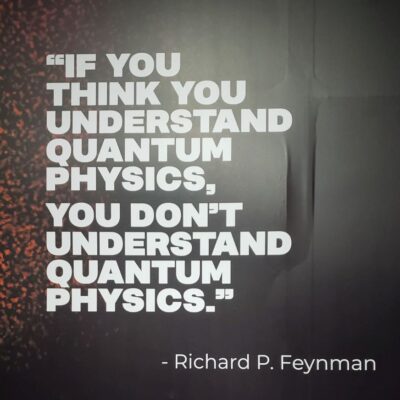
A worldview, simply defined, is a collection of values, attitudes, beliefs, and expectations that inform thoughts and actions. At first glance, the idea of worldviews might appear to be relatively neutral. But that is rarely the case.
Your worldview is a big component of what shapes your reality. Each of us makes decisions that are, in part, informed by our worldviews. These decisions continue to create a reality that supports our worldview. And then we experience our worldviews in action, which reinforces that our worldviews are true.
Unless it’s something you’ve been taught, it’s likely that your worldview is something that exists on auto-pilot rather than in your conscious awareness. Throughout life, we develop our values, attitudes, beliefs, and expectations through our lived experiences. Even the very question of whether your worldview is harmful or helpful might be something you’ve never been asked before.
Evaluating your worldview can feel challenging
If a worldview is made up of your values, attitudes, beliefs, and expectations, then figuring out for yourself if your worldview is helpful or harmful starts with an honest understanding of these parts of oneself.
When you consider your values, what are they really? Not just the values you say are important, but the ones you truly live by? In thinking about attitudes as thoughts and feelings you have about the world and how it operates, what attitudes do you carry? What are your beliefs about how the world works? And what are your expectations of life, living in this world at this time?
These are challenging questions. Challenging because it takes a great deal of personal reflection and honesty to answer them. And challenging because most people discover something in these reflections that feels uncomfortable to acknowledge.
Understanding your worldview helps to understand your position on important issues
When you have an understanding of your worldview, you begin to see how that worldview shapes your position on important issues, decisions, and actions. From there, it is also possible to see how people with different positions are taking their stand from their worldview too.
A question that you can ask, when considering your worldview and its impacts on your position is “How does this help me to achieve my purpose or goal? And at what cost?”
This question starts to point the way to whether your worldview is helpful or harmful in this particular moment, with this particular purpose to accomplish.
An example: approach to the climate crisis
The general consensus is that the climate crisis is real and that the solution is to reduce the emissions of greenhouse gasses like carbon dioxide and methane as much as possible. There are many different ideas for how to approach this emission neutrality. Ideas rooted in different worldviews. As a simplified example, let’s look at 2 of these worldviews:
An environmental worldview puts the greatest weight on environmental responsibility. It says “globally, we must treat the climate crisis in the same way we treated World War II. International cooperation that mobilizes all aspects of the economy and society towards becoming carbon neutral and reversing warming effects is the only way forward. We must act boldly and immediately, regardless of the cost, because we only have 10 years to save the world.”
An economic worldview, on the other hand, puts the greatest weight on revenue generation. It says “we must cooperate internationally in business and government to continue producing petroleum products as efficiently as possible while slowly transitioning to a green economy and a carbon-neutral future. Otherwise, profits will be lost and people will lose jobs. We must act methodically and carefully over the next 30-40 years.”
Proponents of both worldviews agree that climate change is a real problem and that the solution is to end dependence on fossil fuels to reach a state of being carbon-neutral. The purpose is something they agree on.
Where the difference lies, and where conflict is created, is in the worldview that shapes the approach to achieving the solution. Both would say that their worldview is helpful and the other is harmful. When they consider “and at what cost” their worldviews differ - one willing to risk prolonged damage to the environment and the people living in it and the other willing to risk financial uncertainty and increased personal, corporate, and government debt.
As humans, we make sense of facts or information through the lens of our individual worldviews. When those beliefs, values, attitudes, and expectations differ, the chances of conflict increase. And the ability to shift our perspective or our position on any given issue becomes more difficult because it is not just about agreeing on facts, but about how to work with the facts while taking into account thoughts, feelings, values, and expectations.
Your role as a leader
So what does that mean for you as a leader? You bring your worldview into your organizational development – shaping your organization according to your worldview too. Your organization then attracts and retains people who align with that worldview, amplifying it out into the world. The better you understand your worldview and the worldview of the people you work with, the more positive the outcomes of your work are likely to be. Especially when that understanding leads to aligning your worldview with your purpose and desired outcomes.

Attending to Your Worldview: The Key to Making Change Successfully
$97.00
Online Workshop | May 25, 2022 | 9 am – 12:30 pm EDT / 15:00 – 18:30 CEST (also available for self-study)
A worldview, simply defined, is a collection of values, attitudes, beliefs, and expectations that inform thoughts and actions. Your worldview is a big component of what shapes your reality. As a leader, you bring your worldview into your organizational development – shaping your organization according to your worldview too. The better you understand your worldview and the worldview of the people you work with, the more positive the outcomes of your work are likely to be.
- Explore common worldviews and how they can shape your leadership and your organization
- Develop a more clear understanding of your personal worldview so that you can begin aligning your leadership with your worldview…and experience more joy and ease
- Learn to use a simple tool to clarify the worldview of others you are working with and how you can find alignment for better working together from your unique perspectives
When you consciously understand your worldview and those of the people you work with, conflict is reduced, decision-making becomes easier to consciously set out a collective path to the future in your organization. Give yourself the gift of time to make conscious this (often) unconscious driving force in organizational life so that as you shift and change, you always this powerful orientation point.
Author
-

Rachel Bolton is the Director of the Genuine Contact Program and Organization. She is also a Senior Consultant at Dalar International Consultancy. Rachel specializes in supporting small business, team and project start-up with a focus on building solid foundations for long-term success. Visit her website to learn more.
View all posts









Leave a Reply